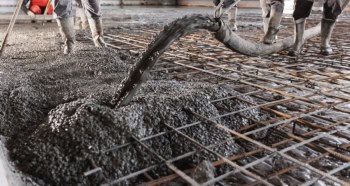Andrew Weld is head of research and development at QLM Technologies, which develops optical sensors that can measure the wavelength-dependent absorption of a laser beam to map carbon dioxide and methane in the environment. Weld holds a PhD in optoelectronics from the University of Southampton in the UK

What skills do you use every day in your job?
In terms of physics, I manage most of our research and development projects, so I have to be able to give a technical overview of our work and explain how everything fits within the company’s goals.
In a small start-up, those goals and priorities change rapidly. This can be based on feedback from customers, but when you’re trying to get a new product to market there are always going to be fires to put out and technical issues to solve, whether that’s hardware, software or component supply.
Also, while the technical aspects of my job are important, I need to have a good feel for time and budget, and be adaptable and flexible as circumstances change.
For example, we recently had an issue where some of our components came back from the supplier and weren’t working correctly. In the long term, you can consider other suppliers or you can work with your current supplier to find a solution, but you also need to fix the immediate problem.
We found that we could change the way we were driving the component, which meant the performance wasn’t optimal but we could still sell the products at a concession or use them for demonstrations. Managing those kinds of trade-offs is a big part of bringing a product to market.
The other important thing is people skills – I’ve found that just a little bit of diplomacy goes a long way. Working out how to handle people is quite a skill, and it’s something that not everyone has.
What do you like least and best about your job?
My favourite aspect of working at QLM is that I believe we are on a worthwhile mission. We want our technology to be part of the solution to climate change, and that provides an extra bit of motivation.
I also get to work with highly skilled scientists and engineers to develop our products and push the boundaries of our technology. It’s also great to be part of the industry community and represent QLM at industry events.
The other thing I enjoy is problem-solving. This is still a fundamental part of my job, but in my current role I will often delegate rather than tackling the problem myself. This can be less satisfying but I have realized that sometimes it’s more effective to use your experience to steer things in the right direction, rather than doing the frontline work.
QLM’s lidar systems have a lot of components that need to function well together. So I’ll often use my experience to guide junior staff, who will perform labour-intensive stages of assembling, programming and testing of our hardware.
What do you know today you wish you knew when you were starting your career?
You have to decide whether you’re happy in your job. Sometimes the best thing to do is to recognize that if something’s not working out for you, it’s time to change.
It’s easy to let yourself stagnate if you keep thinking “I’m sure this is going to change soon”. That’s something that we’re trying very hard to not let happen at QLM but it’s an issue I’ve seen elsewhere. We try to support our staff to develop new skills and to grow with the company, and we seek feedback from them to make sure they are happy in their work.
I look back and think I should have been a bit more ambitious, instead of staying in the lab doing the technical work. I would probably go back and tell myself: “You know what? You recognize that you’ve hit the limit of what you can achieve in that role”. At QLM I enjoy being part of the senior leadership team, where I have responsibility both for developing the hardware and shaping the evolution of the company.
So my advice would be, don’t be afraid to push for personal development with your line managers. If that doesn’t work, you might need to look elsewhere to put your career first. You’re probably going to be working for over 40 years, so make sure you enjoy what you do.



